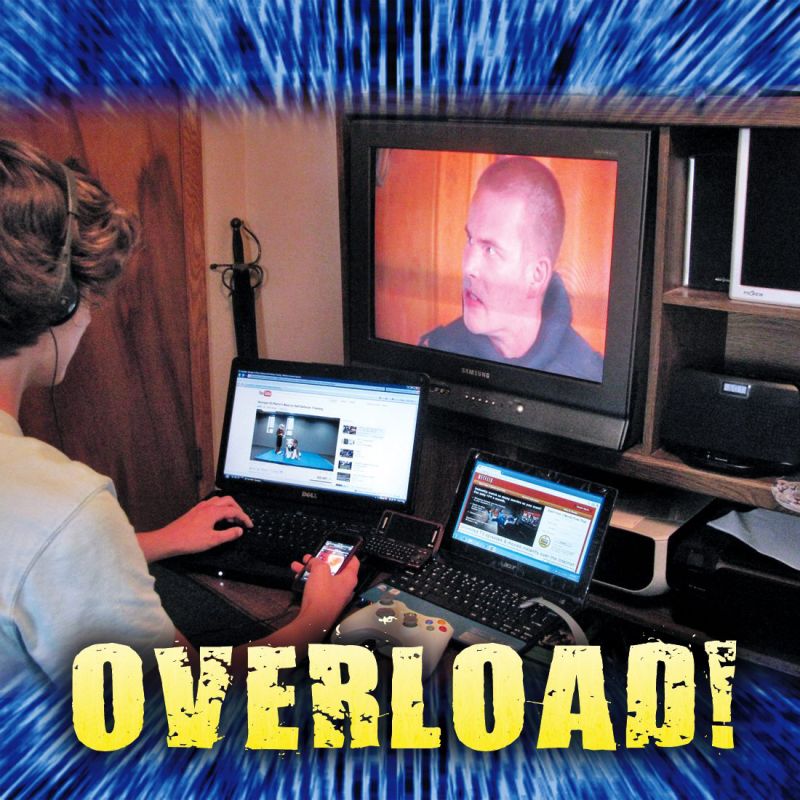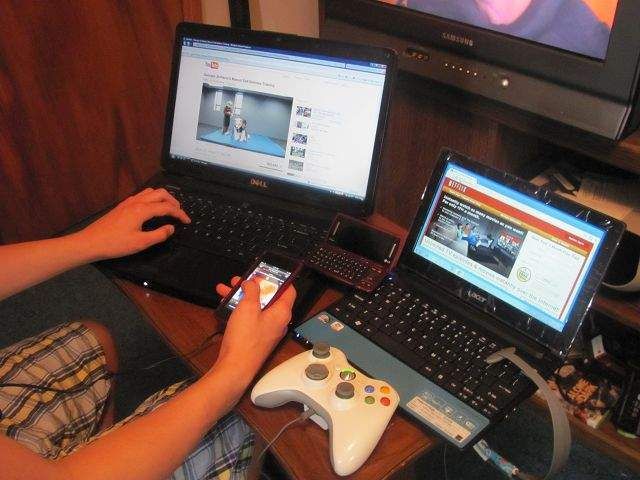Teens barraged by media
Eight to 18-year-olds are now spending an average of seven hours and 38 minutes a day using entertainment media, for a total of 53 hours each week, according to Kaiser Family Foundation/Stanford University research. An additional one hour and 35 minutes per day is spent in texting. This is more time than an adult spends in the workplace weekly. The study also noted that, because of media multitasking with several devices at once, the youth were actually spending 10 hours and 45 minutes per day barraged by media. The study also showed a connection between the moderate to heavy media users and getting lower grades in school.
As teens become young adults and move into the workplace, the effects of this excess are becoming more visible.
"I have noticed, with the young people now graduating, that due to the amount of technology they are comfortable using (and are exposed to), they don't tend to excel in their personal skills as far as their people skills in communication," commented Christine Murgida, a local civil engineer who interviews job applicants. "I would almost qualify many of them as timid, or reluctant. In the past, you would walk into a room, look people in the eye, and introduce yourself, and make a statement as to why you were there and what job you were seeking. I just do not see that now. There is a reluctance, and they are not comfortable with a face-to-face interview, looking people in the eye, and connecting on that level.
"That is disappointing. It's sad, because you have a new grad coming out of four-plus years of higher education, costing a tremendous amount of money, and you would imagine this would have been a fundamental skill they would have learned somewhere along the line," Murgida added, noting that fluency and depth of thought seem to be compromised. "Too much technology can be limiting, and there is only a short email or quick text exchanged, so everything must be condensed. When you condense, you lose detail, and sometimes you even lose the content."
The attitude of teens toward sexuality and morality are also influenced negatively by their excessive media exposure. A study in Pediatrics looked at exposure to sexual media, and found that teens with the highest level of media exposure through TV, movies, music, and magazines were 120 percent more likely to have initiated sexual intercourse at a young age.
Betty Howard, T4C Healthy Choices for Youth/A Team coordinator, agreed.
"Teens are very influenced by the media and the culture. It's their whole world. Many health professionals believe that mass media content which depicts casual sex with no consequences has resulted in a host of negative behaviors among teens who may have been persuaded that teen sexual activity is both acceptable and widespread. In addition to the modeling of unhealthy sexual behaviors, the entertainment portrays unrealistic body images. Teens, especially young females, become discontent with their bodies and may develop unhealthy eating disorders in an attempt to achieve media-ideal body types," stated Howard. "Teens often seek social and sexual information from mass media… popular teen programs promote sex as a recreational pursuit rather than trying to develop a healthy relationship. Also, the gender stereotype is reinforced with men as the aggressor and women as the sex objects who are valued only for their physical appearances. How can this not affect how they see themselves?
"Media is really impacting our teens, society, and community, and it seems to be affecting our kids at earlier and earlier ages," said Howard, citing her own experiences working with teens in local schools. "We need to be focusing on raising confident, secure young men and women who can stand up against peer pressure, teen sex, drug abuse, alcohol and a host of other negative influences. Self-respect, self-esteem, and good communication with parents are key to preventing negative decisions by teens. They model what they see, hear and talk about."




